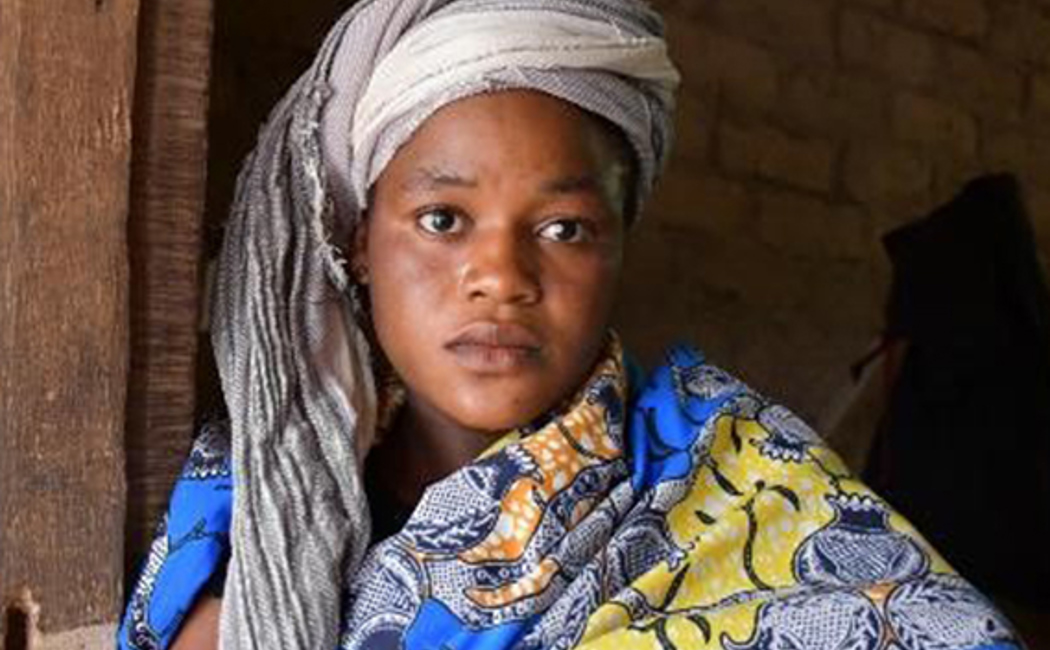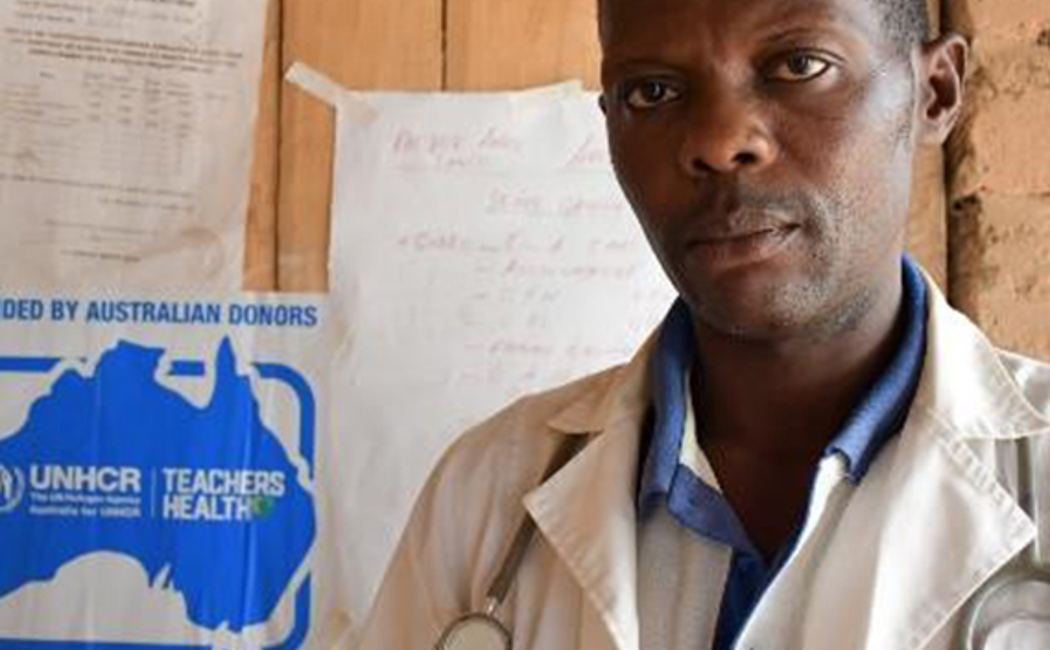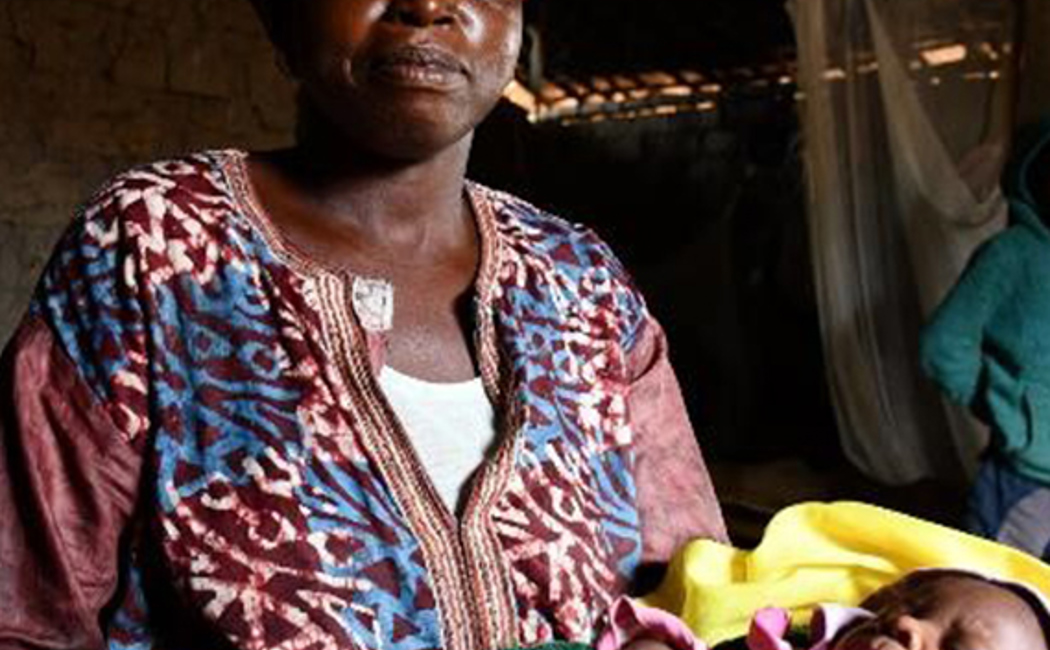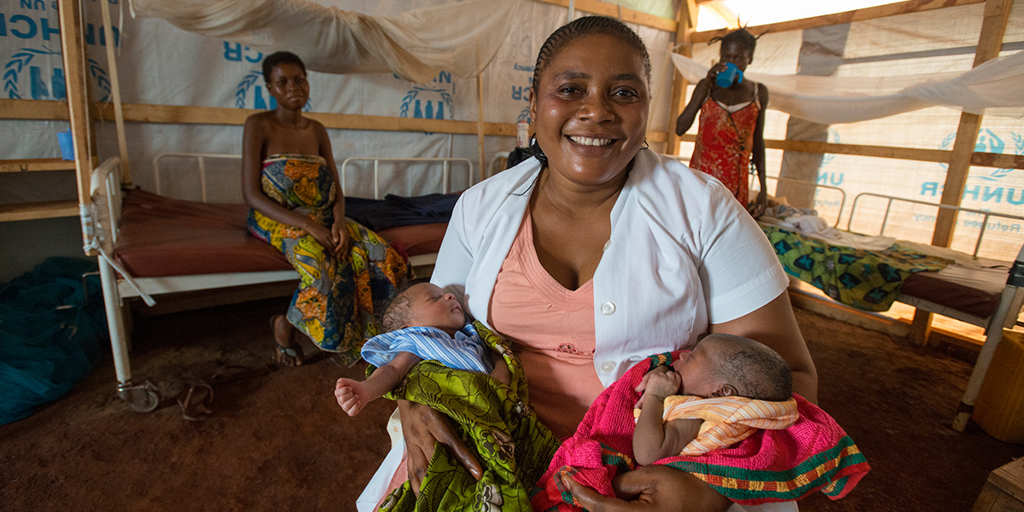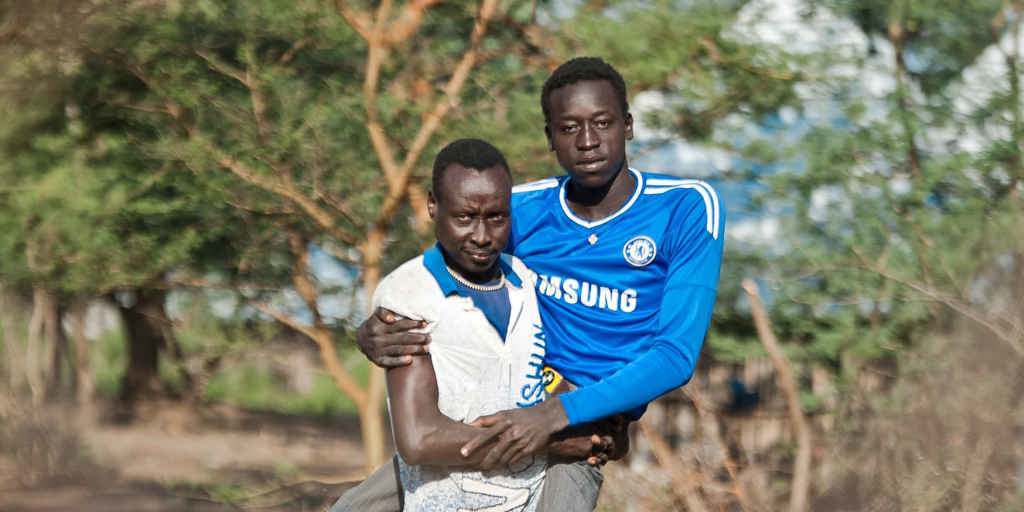Dieudonne, a Congolese senior nurse is the head of the Lembo outpost and ensures that CAR refugees get free neonatal services, with support from UNHCR’s partner AIDES.
He says since the new influx, the number of consultations has doubled from a daily average of 12-20 persons to 20-25 persons, including women and children.
“Before, this outpost was at a makeshift hut in the village. But UNHCR helped us to build it here. They gave us four beds and a delivery bed which we didn’t have before. We also received medical equipment and drugs which have been very useful in providing lifesaving services to both pregnant and lactating mothers as well as children in Lembo,” he says.
“Sometimes, women come without any kits for their babies or hygiene kits for themselves. Sometimes, they are unable to feed the children properly, so we are experiencing an increase in the number of children with malnutrition since the new influx in January 2021. Our community leaders are raising awareness on good feeding practices, but this is not enough because the refugees especially do not have sufficient means to feed themselves. So, we need nutrition supplements to save lives.”
Chantal, a Central African refugee had her fifth child at the Lembo health outpost. Chantal escaped armed violence in her community, Gborongo, some four years ago.
“There were a lot of gunshots one day. I fled instinctively and found myself on the other side of the river. I had left behind two of my children and my husband. I didn’t know where they were. But fortunately, other villagers had taken my children along. I found them in Lembo two days after. My husband joined us later.”
“When I was pregnant with my fifth baby, I started my antenatal sessions at the Lembo health post. I had to take a bicycle there regularly. They have really been kind to us. They gave me advice, treatment for malaria, a mosquito net and assisted me to have my baby free of charge. If I had to pay for this, I don’t know what would have happened because we do not have much to live on here.”
UNHCR DRC Field Officer Fabien Faivre talks about some of the impact of the funding in this video.





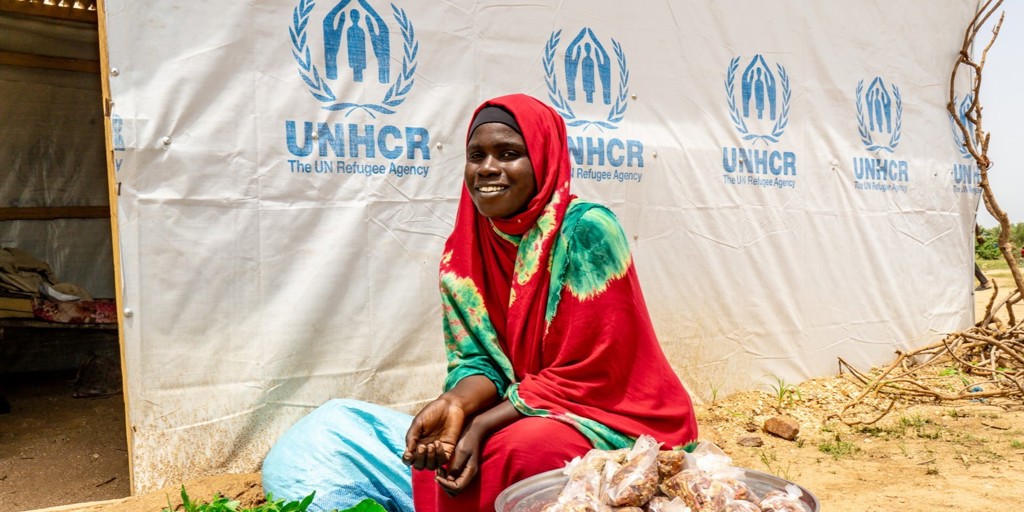










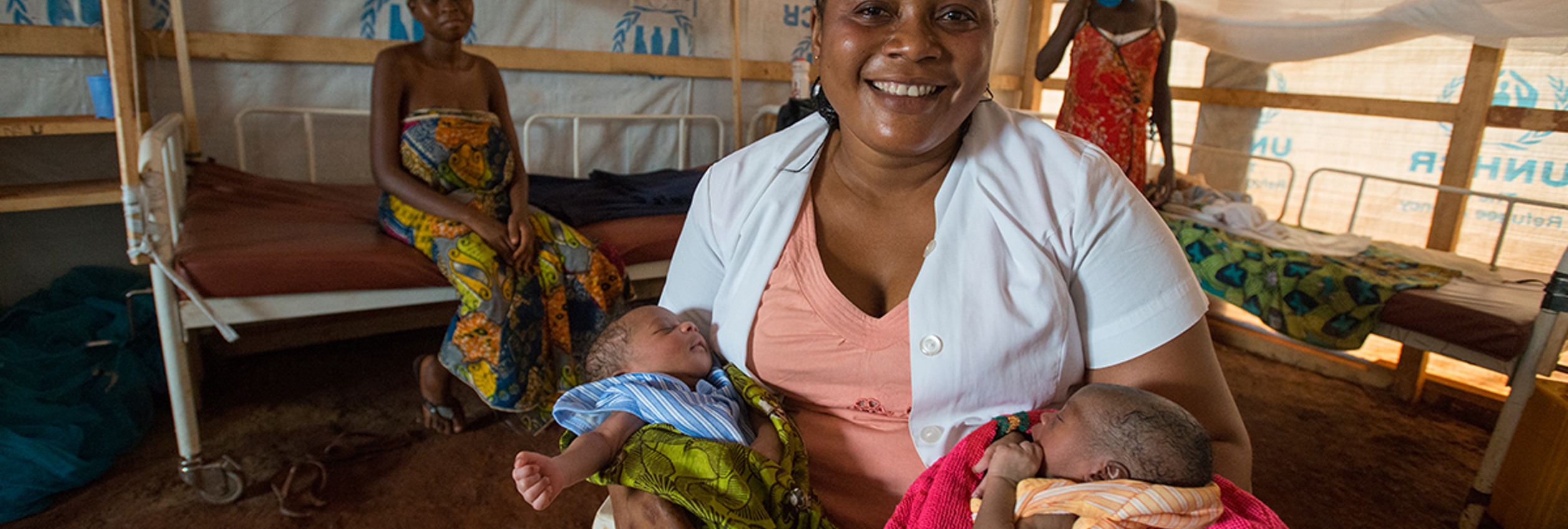
 Democratic Republic of the Congo
Democratic Republic of the Congo
